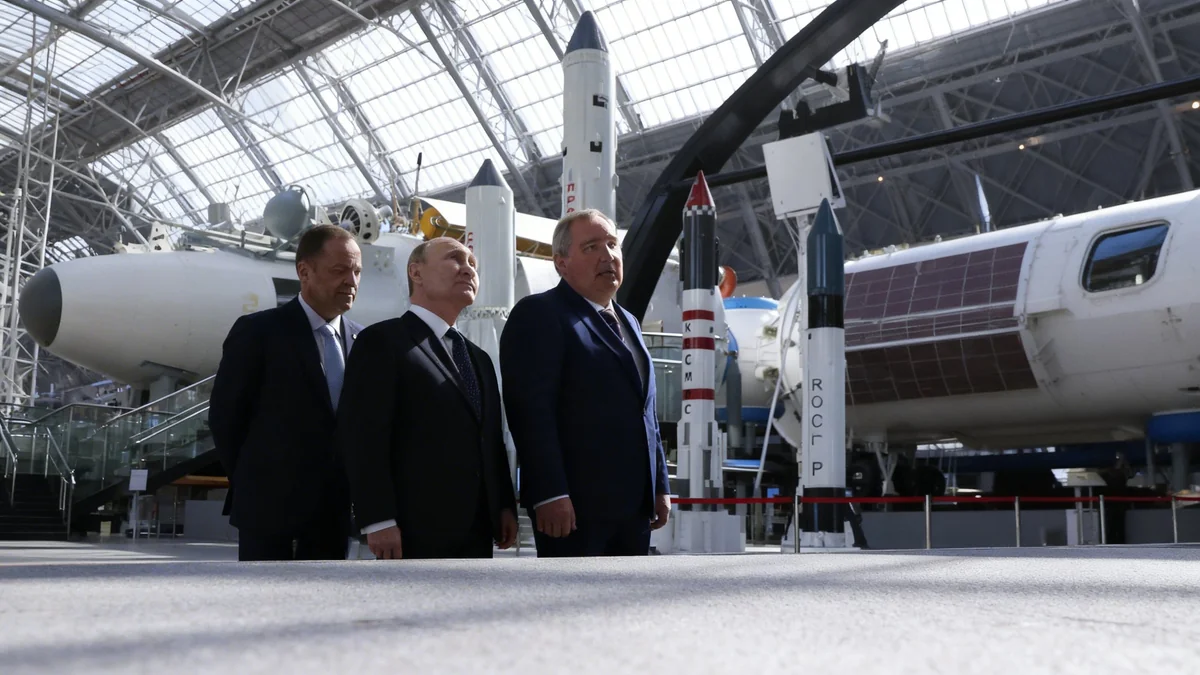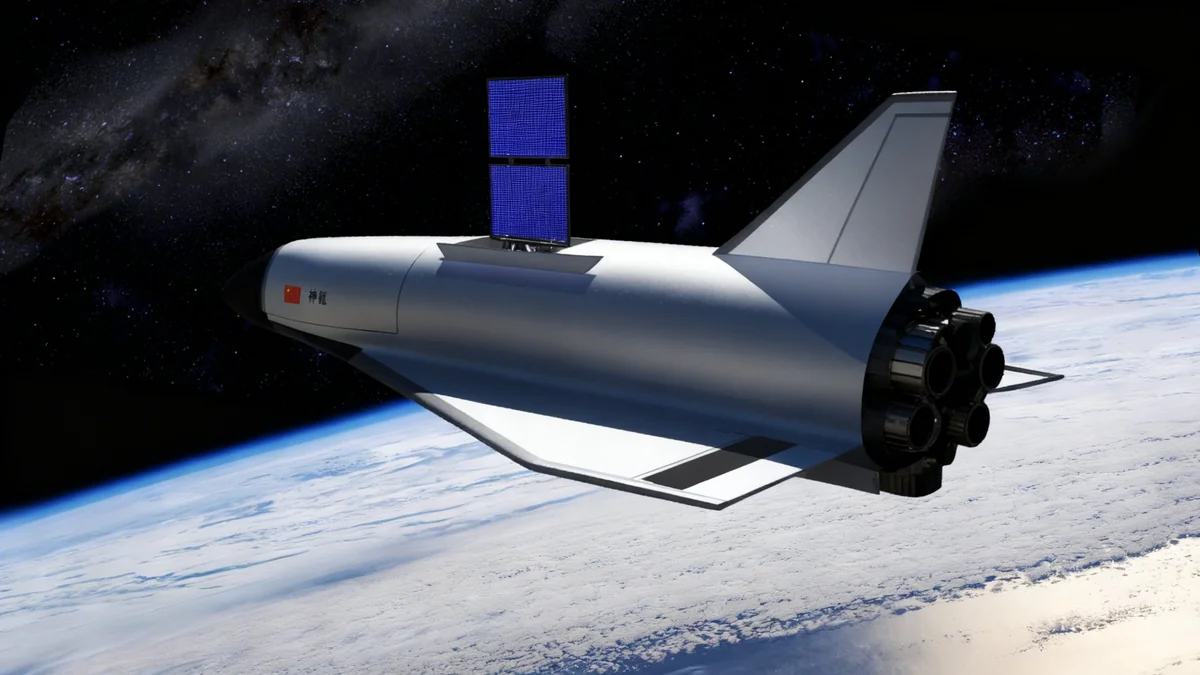Germany has announced a landmark investment of €35 billion ($41.1 billion) into its sovereign space defense capabilities, a move intended to be completed by 2030. The funding represents a significant policy shift for the nation and is viewed as a direct response to increasing geopolitical tensions, particularly with Russia.
The initiative was unveiled by German Minister of Defense Boris Pistorius at the Federation of German Industries Space Congress in Berlin. This financial commitment is designed to bolster Germany's independent space infrastructure rather than contributing to broader European-level projects.
Key Takeaways
- Germany will invest €35 billion in its national space defense sector by 2030.
- The funding aims to develop sovereign capabilities, including communication and spy satellites.
- This move signals a major shift from Germany's previous reliance on allied space systems.
- The investment is expected to stimulate Germany's domestic space industry and attract startups.
A Strategic Shift in German Defense Policy
The German government's decision to allocate €35 billion to space defense marks a profound change in its national security strategy. For decades, Germany and other European nations have relied heavily on the space-based assets of the United States for defense and intelligence.
However, recent geopolitical events, including the war in Ukraine, have prompted a re-evaluation of this dependency. The announcement by Defense Minister Boris Pistorius on September 25 underscores a new emphasis on strategic autonomy for Germany in the space domain.
Historical Context: European Space Defense
Historically, Europe's investment in military space infrastructure has been modest compared to that of the United States. Many European countries, including Germany, were comfortable operating under the security umbrella provided by U.S. space systems. The new German initiative reflects a continent-wide discussion about the need for greater self-reliance in defense matters.
This investment is one of the largest of its kind by any single European country. To put the figure in perspective, the €35 billion commitment is roughly equivalent to the entire five-year budget of the European Space Agency (ESA), to which Germany is already the largest financial contributor.
Boosting Germany's Sovereign Space Capabilities
The funding is earmarked for a wide range of sovereign German projects designed to enhance its military and intelligence operations from space. While specific program details are still emerging, Minister Pistorius outlined several key areas of focus for the investment.
These initiatives are intended to create a robust and independent national space infrastructure. The primary goal is to ensure Germany can protect its interests and operate effectively without relying on external partners for critical space-based services.
Targeted Technology Programs
According to the announcement, the investment will support the development and procurement of several critical space technologies. These include:
- Communication Satellite Constellations: To ensure secure and resilient communications for military forces.
- Reconnaissance Satellites: Advanced spy satellites to improve intelligence-gathering capabilities.
- Space Situational Awareness (SSA): Ground-based radars and other systems to track objects and potential threats in orbit.
- Launch Vehicles: Investment in launchers to guarantee sovereign access to space.
- Guardian Satellites: Defensive satellites designed to protect other German assets in orbit from potential attacks.
A Major Increase in Spending
According to Pierre Lionnet, managing director of the European space industry trade association ASD Eurospace, Germany's annual spending on military space programs was previously around €200 million. The new plan represents a dramatic increase in financial commitment.
Impact on the European Space Industry
Industry experts have described the announcement as a transformative moment for both the German and the wider European space sectors. The massive injection of capital is expected to create significant opportunities for established companies and emerging startups.
“For the very first time, this is a very clear signal that the relevance of space has been understood by the German Ministry of Defense, which has not been the case in the past,” Sven Meyer-Brunswick, a venture investor at Alpine Space Ventures, told SpaceNews.
Meyer-Brunswick referred to the investment as a "watershed moment" that will provide a "substantial push for the industry." For years, European space startups have faced challenges in securing funding and scaling their operations due to a lack of large-scale government contracts. Many promising companies have relocated to the United States to compete for defense-related work.
This new German budget could reverse that trend. "The market happened in the United States because the first customers tend to be on the military side," Meyer-Brunswick explained. "But this is changing, we believe, completely with that announcement."
National Priorities and Pan-European Projects
The focus on sovereign German projects has raised questions about the country's commitment to collaborative European space initiatives, such as the EU's IRIS² secure communication constellation.
Some analysts suggest the move signals frustration with the slow pace and bureaucratic complexity of pan-European programs. Independent analyst Christian von der Ropp noted that a national program allows for "competitive tenders, real cost discipline, clear lines of accountability and faster implementation."
He added that the initiative sends a message that Germany wants "sovereign strategic infrastructure that we can shape and control ourselves."
About IRIS²
The Infrastructure for Resilience, Interconnectivity and Security by Satellite (IRIS²) is the European Union's planned multi-orbit satellite constellation. Approved in 2022 with a budget of €10.6 billion, it is intended to provide secure communications for government users. However, with launches not expected until 2029, the project has faced criticism for being too slow to meet current security needs.
However, others believe the German investment will complement, not compete with, EU-level efforts. Pierre Lionnet of ASD Eurospace suggested that increased national investment often leverages and amplifies pan-European programs. The strategic pressure from the conflict in Ukraine may accelerate this effect.
A Catalyst for Broader European Investment
The German initiative could also encourage other major European powers to increase their own space defense budgets. Experts anticipate that nations like France, Italy, and Poland may soon follow Germany's lead to avoid falling behind.
"If Germany assumes this kind of leadership role, I do not think that France, Poland or Italy will just sit there and watch," said Meyer-Brunswick. "They will probably ramp up their own budgets as well, which will further help build the European space technology market."
This trend is already emerging, with several European countries recently announcing purchases of Earth observation satellites for military use. The German investment is likely to accelerate this move toward greater European strategic autonomy in space.





